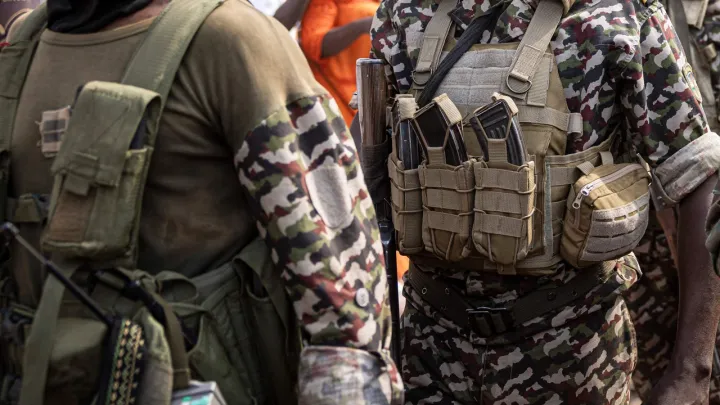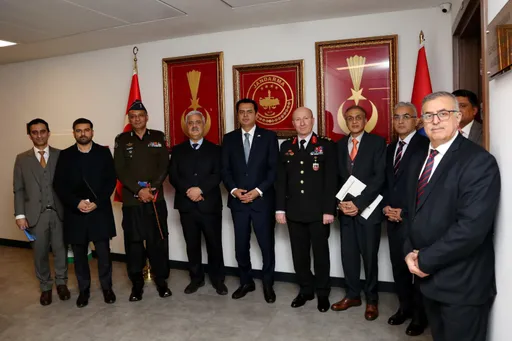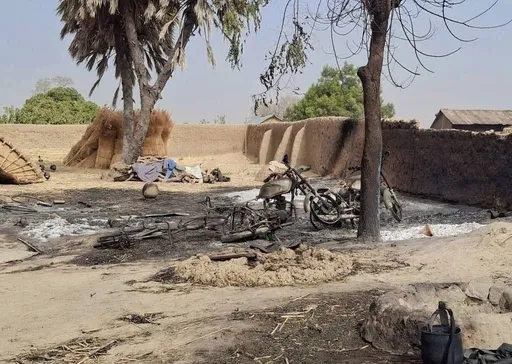Hundreds of thousands of Sudanese civilians trapped in cities under paramilitary siege are struggling to survive, eating leaves with no aid allowed in more than two years into their country's war.
AFP spoke to people in three besieged cities still nominally under army control, but which are surrounded by paramilitary forces: North Darfur state capital El-Fasher, and South Kordofan's Kadugli and Dilling.
Here is what the survivors say:
"The bombing is constant, we spend most of our time in the shelter we dug in front of our house," said Omar Adam, who fled with his family the Abu Shouk displacement camp on the city's outskirts, which paramilitary fighters have overrun.
'Nothing left'
Since August, the paramilitary Rapid Support Forces (RSF) have intensified artillery and drone attacks, in a push to seize Darfur's last major city still under army control, which they have besieged for 18 months.
"We have nothing left. Even ambaz has grown scarce," he told AFP, referring to an animal feed made from peanut shells which many in El-Fasher have survived on for months.
"Even if we decide to leave, we fear the RSF will catch us, and the journey is too expensive."
Satellite imagery analysed by Yale University's Humanitarian Research lab shows the RSF has built 68 kilometres of walls around much of the city, leaving only a small exit route.
One doctor on duty for many months
Halima Issa, another resident of El-Fasher, can't see a way out. She has been living in a shelter with her three children since her husband was killed in one of the countless strikes that have rocked the city throughout the siege.
"Our only hope is the local community kitchen, but whenever it closes, we don't eat," she told AFP.
"When one of my children gets sick, I can't do anything about it. My oldest is five, my youngest is barely a year old."
In El-Fasher Hospital, one of the last health facilities standing after many were bombed and forced out of service, one doctor has been on duty for three consecutive months.
Unbearable hunger
Out of nearly all supplies, he said doctors have taken to using mosquito nets as gauze.
"We've almost run out of all medicines, and because there's no disinfectant we can't even sterilise the basic tools we do have, which we use to treat wounds and remove shrapnel," he said on condition of anonymity for fear of being targeted, as other health workers have been.
Hassan Ahmed, a volunteer at the local paediatric ward, said: "Every day, patients die on our watch that would normally be so easy for us to save, but even essential life-saving medicines are completely absent here. There's nothing left," he said.
"There are days where we don't eat anything, and we have to find whatever green plants are around. It doesn't matter if they're good or bad for you, you just have to find something to stop the hunger," Hagar Adam, 28, told AFP from Kadugli, the South Kordofan state capital.
Basic needs out of reach for many
According to UNICEF, more than 63,000 children are suffering acute malnutrition in South Kordofan.
Like Kadugli, the town of Dilling has been besieged in turn by the RSF and their allies the Sudan People's Liberation Movement-North (SPLM-N).
"Prices are doubling by the day, even basic necessities have become outrageously expensive, people can't keep up," said Emgahed Moussa, a 22-year-old who had planned to become a teacher before quitting school to work in the local market.
She said she has seen hundreds of people "leaving the city every day, looking for food, water and healthcare."























